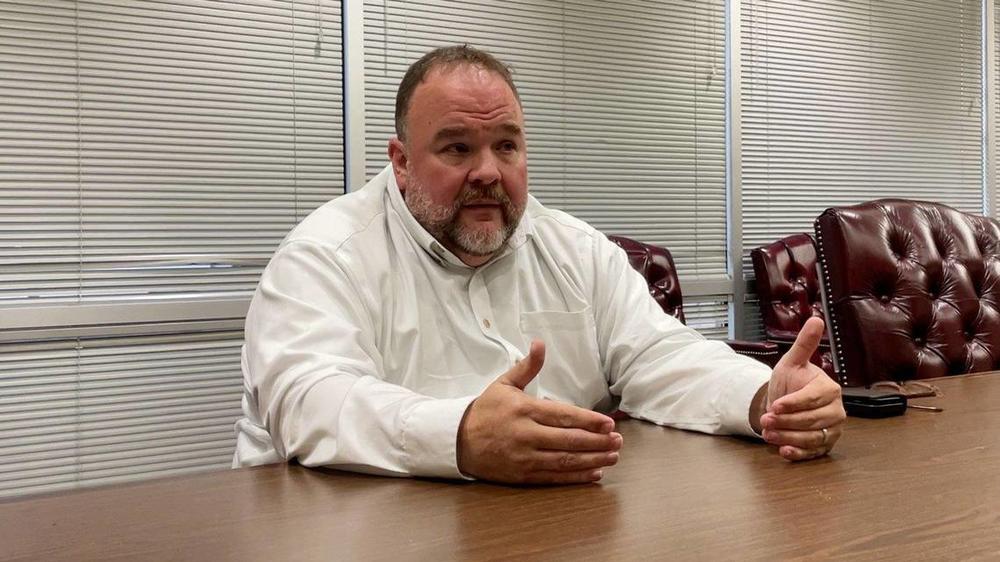
Caption
United to End Homelessness executive director Jake Hall speaks to The Telegraph on Tuesday, Feb. 11, 2025, in Macon, Ga. Hall sees addressing homelessness in Macon and Middle Georgia as a collaborative approach between government and local nonprofits.
Credit: Katie Tucker/The Telegraph

